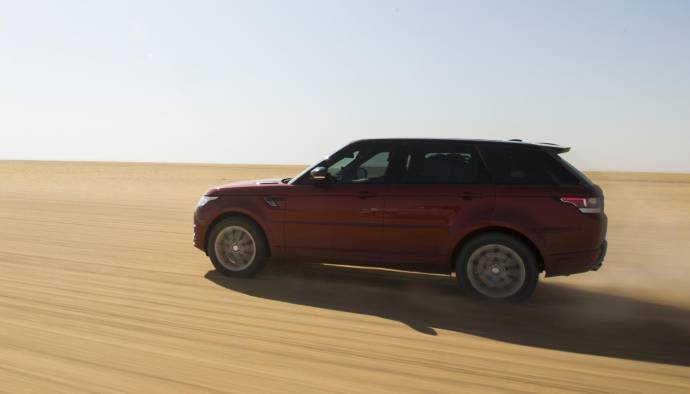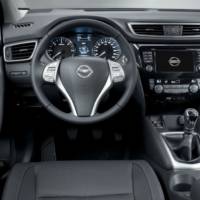The new Range Rover Sport has set the fastest recorded time for a land vehicle crossing of the ‘Empty Quarter’ – one of the harshest and most challenging desert environments on the planet. The Empty Quarter – or Rub’ al Khali – is the largest sand desert in the world and the second largest desert after the Sahara. Intensely hot by day with temperatures exceeding 50°C, it is also dangerously arid. With no reliable water sources and an ever-shifting terrain, it provides a true test for man and machine.
The drive team completed the journey from Wadi Adda Wasir in Saudi Arabia to the border of the United Arab Emirates in 10 hours and 22 minutes at an average speed of 51.87 mph (81.87 km/h), covering a distance of 849km – the route dictated by the conditions on the ground.
The time was set by a standard production new Range Rover Sport with a 510PS 5.0-litre supercharged V8 petrol engine, running standard tyres. The only modification to the vehicle was the fitment of an underbody protection plate.
The vehicle was driven by Land Rover driver Moi Torrallardona, a 47 year-old Spanish off-road racer with extensive experience of the Dakar Rally, in which he competed for ten successive years with a best finish of 6th overall.
The team encountered a constantly challenging landscape including vast sand flats, soft dunes and epic canyons. They set off at first light on November 3rd and finished the challenge 10 hours later on the border as the sun was setting.
The challenge is the second that the new Range Rover Sport has completed in recent months, following its record hill climb for a production SUV at Pikes Peak back in June. These feats are part of a series of global driving challenges in which the Range Rover Sport is pushed to new limits.
The Empty Quarter spans four countries in the Arabic Peninsula: Saudi Arabia, Oman, the United Arab Emirates and Yemen. Temperatures regularly rise above 50°C and any crossing, no matter how well organised, must be approached with extreme caution.



